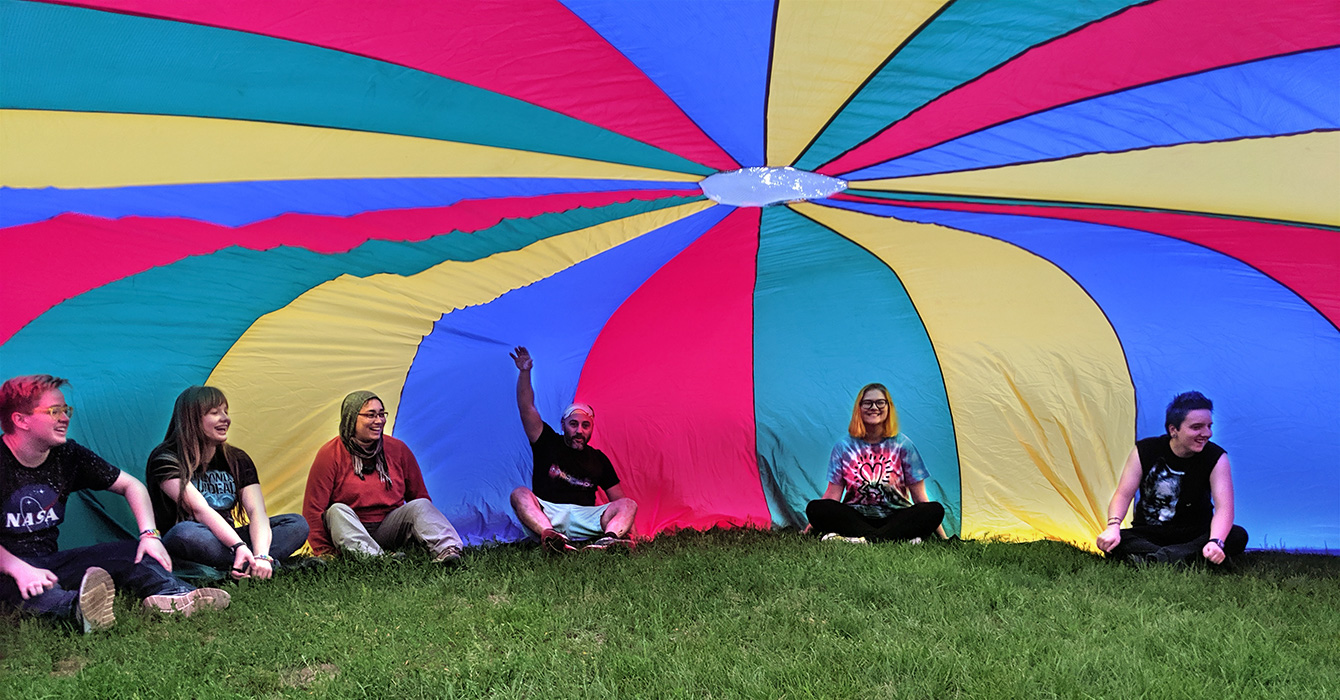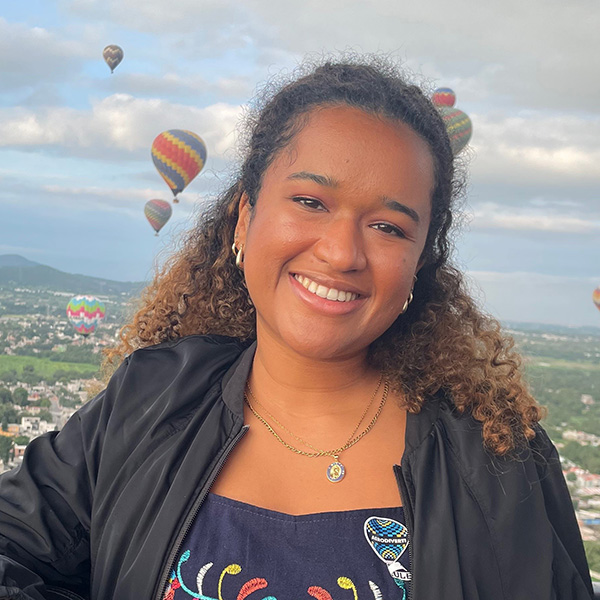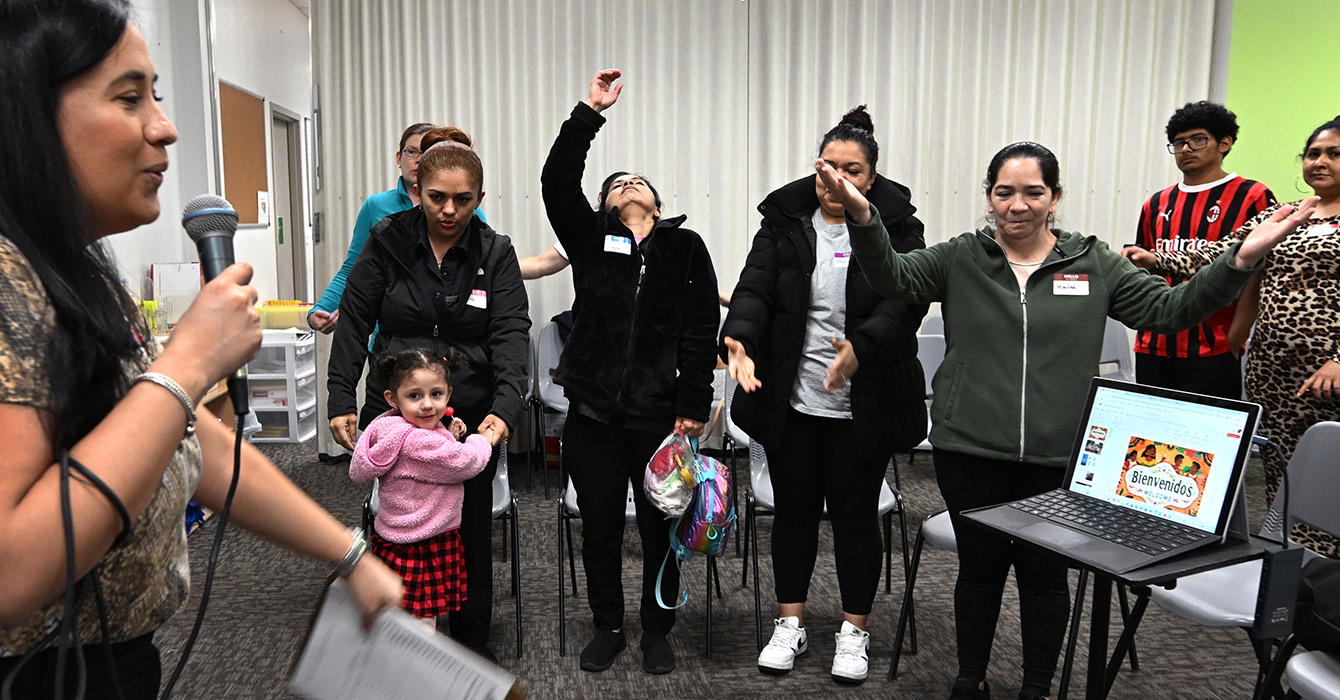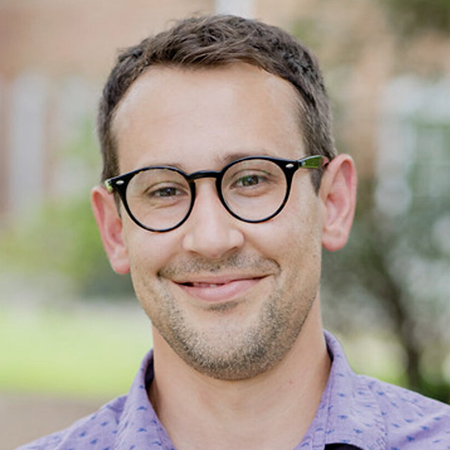LGBTQ youth experience very few welcoming spaces, and that directly translates to mental health issues and increased rates of suicide.
According to research from The Trevor Project, only half of LGBTQ youth report that their schools are LGBTQ-affirming, and only one-third report that their homes are LGBTQ-affirming. A 2021 study found that LGBTQ youth who reported experiencing LGBTQ-based physical harm, discrimination, housing instability or parental hostility were 12 times more likely to attempt suicide than peers who did not report such experiences.
Kids are vulnerable anyway, and LGBTQ kids in particular experience multiple forms of discrimination, making it very difficult to discover their own identities in safe spaces.
But The Trevor Project has found that having at least one accepting adult can reduce the risk of a suicide attempt among LGBTQ youth by 40%.
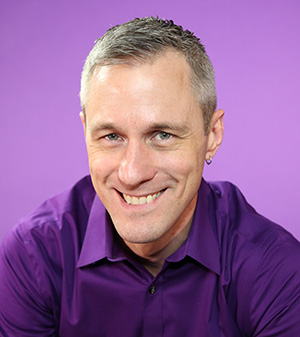
It’s to this end that Ross Murray both founded The Naming Project, a summer camp for LGBTQ youth, and wrote his recent book, “Made, Known, Loved: Developing LGBTQ-Inclusive Youth Ministry.”
“Just having helpful, supportive adults in their life, ones that will listen, can help reduce risk. We need those in every community, home, school and church,” Murray said.
In addition to being the co-founder of The Naming Project, Murray is a vice president at the GLAAD Media Institute and an ordained deacon in the ELCA.
He spoke with Faith & Leadership’s Chris Karnadi about the book and the importance of The Naming Project. The following is an edited transcript.
Faith & Leadership: Tell me about the history of The Naming Project.
Ross Murray: The Naming Project began around 2003. When I was working at a youth and family ministry program, one of the other staff came to me and said that they had this family in their church whose 15-year-old son came out to them, and they were supportive and also wanted to find him a good community, but they were having a really hard time finding that and asked if there were any church-based LGBTQ youth groups.
They found a lot of secular LGBTQ organizations, but we researched and could not find anything [faith-based] that existed at that time and so decided we would just begin something. The original plan was to run something that was sort of like a local group in the Twin Cities, a weekly drop-in meeting.
Soon after that, one of the other leaders came to us and said, “I’ve always had this idea of doing a summer camp, but for LGBTQ youth.” So we adopted that as one of our programs, and that now has become the main program.
We’re national in focus while running what looks like a pretty traditional Lutheran Bible camp, because that’s where we all came from, so we kind of replicated the model of what we already knew.
We replicated that structure of what we were familiar with. Over the last almost 20 years, it’s grown and evolved and changed and adapted. The structure works very well beyond just those with a Lutheran background.
What a camp day or camp week looks like and the elements that get included are still really foundational and apply to so many different kids. Then we make the content and the community and the theology and the culture of the space one that is very queer, very LGBTQ-centered. We come from a place of Christianity but also are open to anyone that wants to explore Christianity, and to us accompanying them where they are in their life.
F&L: What do you hope kids that attend the camp would experience or learn?
RM: The goal that we have for them is to learn more about who they are, who God made them to be, and what they’re called to do in the world.
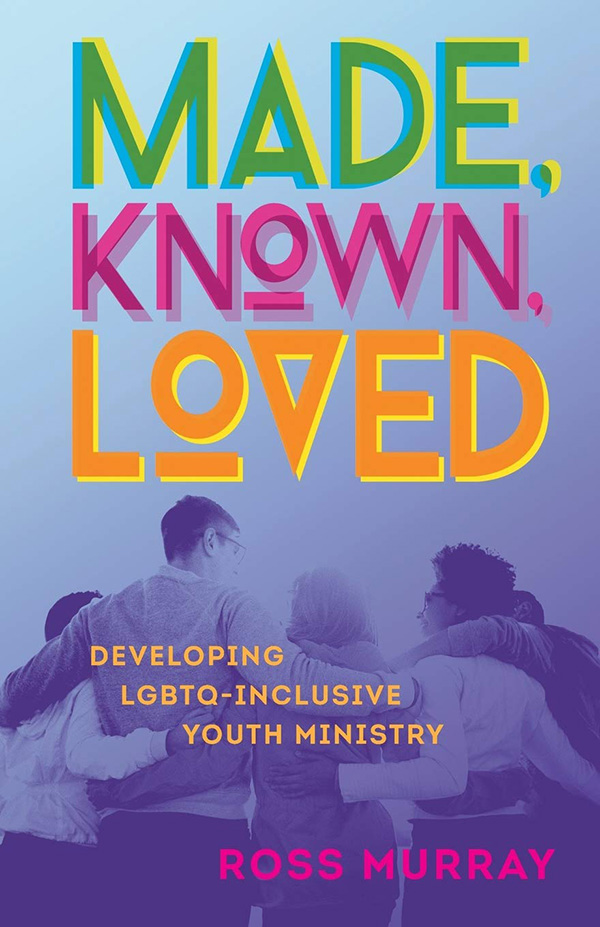
Adolescence is a time to figure out who you are, and one of the theories that has emerged about when people come out later in life is that there’s kind of a second adolescence, because you didn’t get to do that the first time around.
What I hope is that young people can do that exploration in a safe enough space where they don’t feel fear about exploring and figuring out who they are. And then we’re able to support them in doing that and putting that in perspective for their faith as well as their sexual orientation and their gender identity.
F&L: What are some principles of LGBTQ-inclusive youth ministry?
RM: The biggest one is listening to and believing what LGBTQ youth tell you about themselves.
It is understanding that the preconceived notions of us thinking we know who they are or what their experiences are in the world are probably not accurate.
Even I, as a gay person, can’t project what I think a young person is or who I think a young person is. All I can do, really, is give them the space to do that exploration for themselves.
Whenever they tell me something about themselves or how they are feeling, I listen to them. I believe them. I treat them accordingly, and if they come back to me sometime later and tell me something that’s different, I’ll adjust how I treat them based on the new information, because they are learning and discovering this in real time.
Our camp helps young people because it is a set-apart space. It takes people away from school, families, bullying, jobs, community expectations on who they are and gives them the space to do this self-discovery, which is much harder to do when you’re trying to meet everybody else’s expectations for how you’re going to live your life.
F&L: Why is it especially important for kids to see churches as LGBTQ-inclusive?
RM: Well, there are two sides of it. It’s good for kids to see churches as LGBTQ-inclusive so that they know that there is a space for them that is truly safe, truly welcoming, a place where they can be who they are and be loved and supported in that.
As a deacon and a minister of the church, I know it’s also good for the church to have our community filled with folks that are coming from different backgrounds, that have different experiences of life, because they’re going to teach us how to do and be a much more effective ministry within this world and move us from becoming places of clubs with a lot of like-minded folks to something that’s much more mission driven, being able to engage with the world.
F&L: How can churches process networks and partnering with other people who might not be LGBTQ-inclusive?
RM: Churches are part of these larger communities, and they may be part of networks of youth ministry with partners who don’t come from the same background or have the same beliefs. I think it’s important to start asking whether the organizations that I’m working with are going to be safe spaces for my young LGBTQ people, and asking some very specific, concrete questions about what that looks like. I outline some of those questions in the book, but asking the questions is being a witness.
The assumption that has existed for so long in our culture is that to be Christian means to be anti-LGBTQ, and there are some Christian organizations and denominations that continue to promote that false dichotomy. It’s not enough for us to say we’re not like that. We need to ask how going to this youth gathering or on this mission trip type of thing might put my young people in a place that makes them feel vulnerable or puts them in harm’s way.
Ask questions. Is my young person going to be with strangers that aren’t going to accept them? Are they going to be in places where they’re going to experience harassment? What kinds of gender roles are being enforced in programs like this? And then maybe make the hard decision to say, “I’m not going to participate in programs like that.”
F&L: Some recent legislation has been passed that has been targeting LGBTQ kids, and especially trans kids and their parents. How do you think churches should be responding to some of those current events?
RM: I would hope that churches aren’t just responding to it but are actually preventing these attacks of legislation on young people. In an ideal world, I would love to see churches, faith leaders, parents, individuals prevent even the idea of wanting to control the information a young person can see, of what they’re able to talk about or what supportive adults can be in their lives.
Of course, once that legislation is introduced, a really robust response is needed to make sure that we’re churches that are welcoming and supportive. We need to make sure we are visible and vocal and don’t just shake our heads and clutch our pearls and say, “That’s so sad.” We need to be asking, “What can we do to protect young people and keep them safe from harassment and discrimination and bullying that can lead to actions like either self-harm or sometimes violence from others?”

